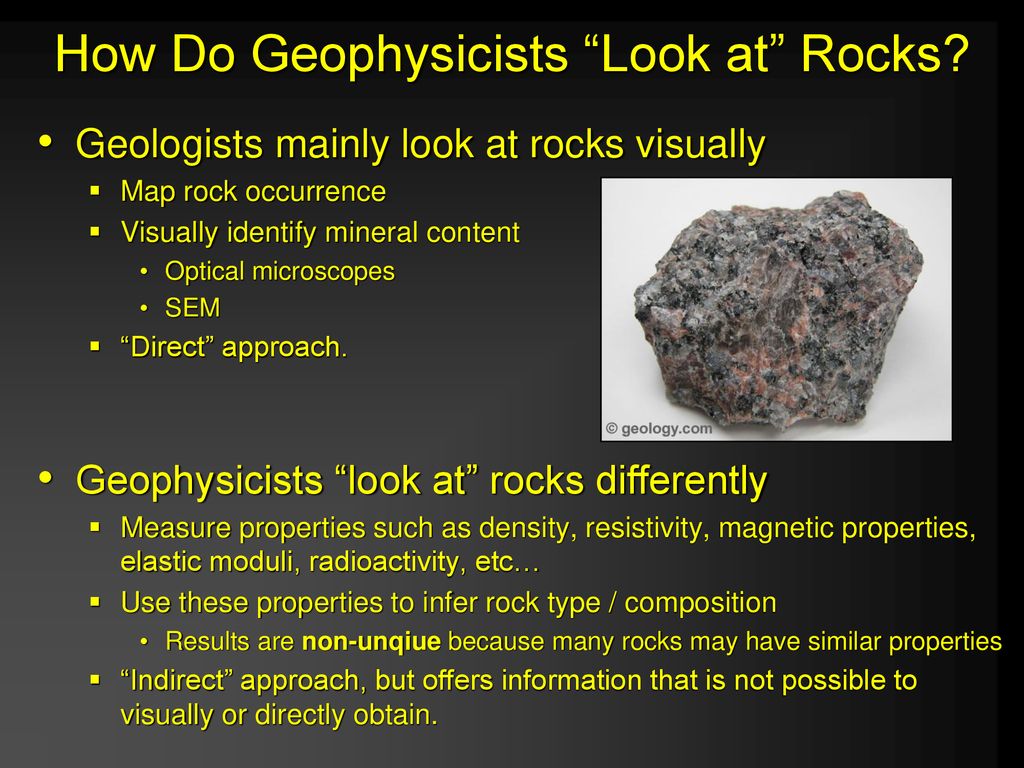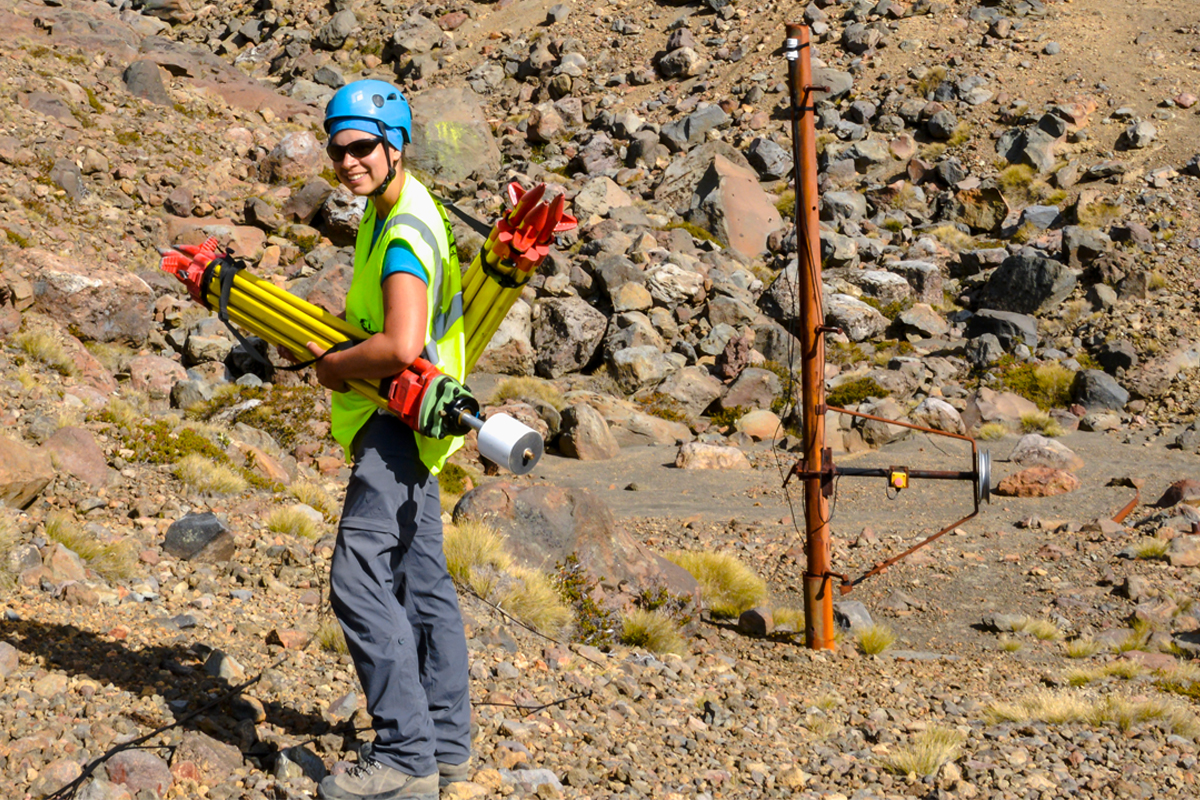All Categories
Featured
Table of Contents
Course: Basics In Geophysical Surveying in Iluka Oz 2022

The primary design for the radial structure of the interior of the Earth is the initial recommendation Earth model (PREM). Some parts of this design have actually been upgraded by current findings in mineral physics (see post-perovskite) and supplemented by seismic tomography. The mantle is generally made up of silicates, and the boundaries in between layers of the mantle follow phase transitions.

This makes plate tectonics possible. Schematic of Earth's magnetosphere. The solar wind Flows from left to. If a planet's electromagnetic field is strong enough, its interaction with the solar wind forms a magnetosphere. Early area probes mapped out the gross measurements of the Earth's magnetic field, which extends about 10 Earth radii towards the Sun.
Inside the magnetosphere, there are relatively thick regions of solar wind particles called the Van Allen radiation belts. Geophysical measurements are typically at a specific time and place.
Geophysical Survey Services in Maddington Aus 2021
A three-dimensional position is computed utilizing messages from four or more noticeable satellites and referred to the 1980 Geodetic Recommendation System. An alternative, optical astronomy, combines huge collaborates and the regional gravity vector to get geodetic coordinates. This method just offers the position in 2 collaborates and is harder to utilize than GPS.
Relative positions of 2 or more points can be identified using very-long-baseline interferometry. Gravity measurements entered into geodesy due to the fact that they were needed to associated measurements at the surface area of the Earth to the reference coordinate system. Gravity measurements on land can be used gravimeters released either on the surface area or in helicopter flyovers.
Water level can also be measured by satellites utilizing radar altimetry, adding to a more accurate geoid. In 2002, NASA introduced the Gravity Healing and Climate Experiment (GRACE), in which two twin satellites map variations in Earth's gravity field by making measurements of the distance between the 2 satellites using GPS and a microwave ranging system. Satellites in space have made it possible to collect data from not just the visible light region, but in other locations of the electromagnetic spectrum. The planets can be identified by their force fields: gravity and their magnetic fields, which are studied through geophysics and area physics. Determining the changes in velocity experienced by spacecraft as they orbit has actually permitted great information of the gravity fields of the planets to be mapped.
Geophysicist in Maida Vale Western Australia 2022

Considering that geophysics is concerned with the shape of the Earth, and by extension the mapping of functions around and in the planet, geophysical measurements consist of high precision GPS measurements. When the geophysical measurements have actually been processed and inverted, the translated results are outlined utilizing GIS.
Many geophysics business have created in-house geophysics programs that pre-date Arc, GIS and Geo, Soft in order to fulfill the visualization requirements of a geophysical dataset. Exploration geophysics is applied geophysics that frequently uses remote noticing platforms such as; satellites, aircraft, ships, boats, rovers, drones, borehole noticing equipment, and seismic receivers.
Aeromagnetic data (aircraft gathered magnetic data) collected using conventional fixed-wing airplane platforms should be fixed for electromagnetic eddy currents that are produced as the airplane moves through Earth's magnetic field. There are likewise corrections associated with modifications in measured possible field strength as the Earth turns, as the Earth orbits the Sun, and as the moon orbits the Earth.
Geophysical Services in City Beach Australia 2022
Signal processing involves the correction of time-series information for unwanted sound or errors introduced by the measurement platform, such as airplane vibrations in gravity data. It likewise involves the reduction of sources of sound, such as diurnal corrections in magnetic data. In seismic data, electromagnetic data, and gravity data, processing continues after error corrections to consist of computational geophysics which result in the last interpretation of the geophysical data into a geological interpretation of the geophysical measurements Geophysics became a separate discipline just in the 19th century, from the crossway of physical location, geology, astronomy, meteorology, and physics.
The magnetic compass existed in China back as far as the 4th century BC. It was not up until excellent steel needles might be created that compasses were utilized for navigation at sea; before that, they could not keep their magnetism long enough to be helpful.
By looking at which of 8 toads had the ball, one might figure out the instructions of the earthquake.'s (1600 ), a report of a series of precise experiments in magnetism.
Career Guide: Geophysicist in Coolbellup Aus 2022
Dietmar; Sdrolias, Maria; Gaina, Carmen; Roest, Walter R. (April 2008). "Age, spreading out rates, and spreading out asymmetry of the world's ocean crust". Geochemistry, Geophysics, Geosystems. 9 (4 ): Q04006. Bibcode:2008 GGG ... 9. 4006M. doi:10. 1029/2007GC001743. S2CID 15960331. "Earth's Inconstant Electromagnetic field". science@nasa. National Aeronautics and Space Administration. 29 December 2003. Recovered 13 November 2018.
Leipzig. Berlin (Gebruder Borntraeger). Runcorn, S.K, (editor-in-chief), 1967, International dictionary of geophysics:. Pergamon, Oxford, 2 volumes, 1,728 pp., 730 fig Geophysics, 1970, Encyclopaedia Britannica, Vol. 10, p. 202-202 Ross 1995, pp. 236242 Shearer, Peter M. (2009 ). Introduction to seismology (2nd ed.). Cambridge: Cambridge University Press. ISBN 9780521708425. Stphane, Sainson (2017 ).
Latest Posts
Geophysical Survey Methods in Western Australia 2021
Geophysicist Salary in Wembley Downs Aus 2021
Bsc Geophysics in Safety Bay WA 2023